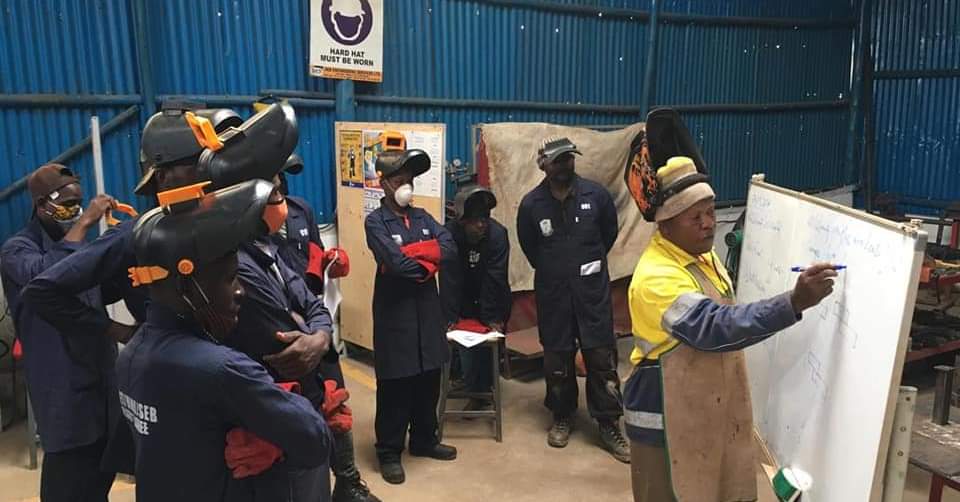According to the African Development Bank’s (AfDB) annual African Economic Outlook, there is a 54% mismatch between the skills of job seekers and employers’ requirements in the youth job market of 36 African countries.
The lack of skills and the rapidly expanding population is a “ticking time bomb” and concludes that “we need to focus on job creation.” To this end, governments, the private sector, academic institutions, and nongovernmental organisations are collaborating on the design and implementation of plans for selected industries with strong competitive potential like agroindustry and construction in relation with the rapidly growing infrastructure projects in our continent.
To secure your financial future it is important to learn a skill that society deems to be necessary in today’s time. A skill that makes money today .
1. What does a welder do?
Generally speaking, a welder cuts and joins metal parts by applying heat to the metal with a welding torch. Welders also read blueprints, lay out and position metal parts, inspect work pieces for flaws, or set up and maintain welding equipment.
2. Is welding hard?
As with most things, welding takes certain skills and sufficient practice. Those who like hands-on work and prefers more technical fields, welding can be a good option. Getting welding training will help build a foundation that further experience in the field will improve welding skills.
3. What education is required to become a welder?
Some vocational schools require a high school certificate before enrolling. Others would-be welders can get hired on as helpers and learn on the job. Welding students can expect to learn about various welding techniques, safety practices, equipment procedures, professional responsibilities, and work ethics. Basic understanding of math, electricity, and physics is also helpful. Many employers prefer candidates who have completed vocational programs.
4. What skills are needed to become a welder?
Some skills include critical thinking, reading comprehension, operation and control, monitoring/assessing, and orientation to detail. Welders also need to have good vision, manual dexterity, physical stamina, and physical strength. And of course, the desire and patience needed to learn welding.
5. Does welding require becoming certified?
Many employers to require some kind of welding certification. There are two main types of certification. One is an employer-based certification. Candidates are given a welding test of the processes used on a particular job. That test is good for that employer. The other is an industry-standard approved certification through the NITA, TVET CDACC, International Institute of Welding, American Institute of Welding and other accredited Technical Institutes of the mentioned. Professional Certification like Recognition of Prior Learning and Up skilling Certificates, organizations typically require welders to have a minimum amount of on-the-job experience to become certified.
6. Where do welders work?
The vast majority of welders work in manufacturing. Some also work in specialty trades, repair and maintenance, and durable goods merchant wholesale. Welders work outdoors, like on a construction site, as well as indoors, such as in a manufacturing plant.
8. What are the job prospects for women?
As many in skilled trade industries have claimed labor shortages, there is opportunity for those with skills in areas like welding. Traditionally, welding has been considered “men’s” work, many employers are embracing women in the welding industry. An added benefit is many skilled trade professions offer higher pay than other middle-skill jobs women usually work and generally the ability to earn money after less than a year of training.



No responses yet